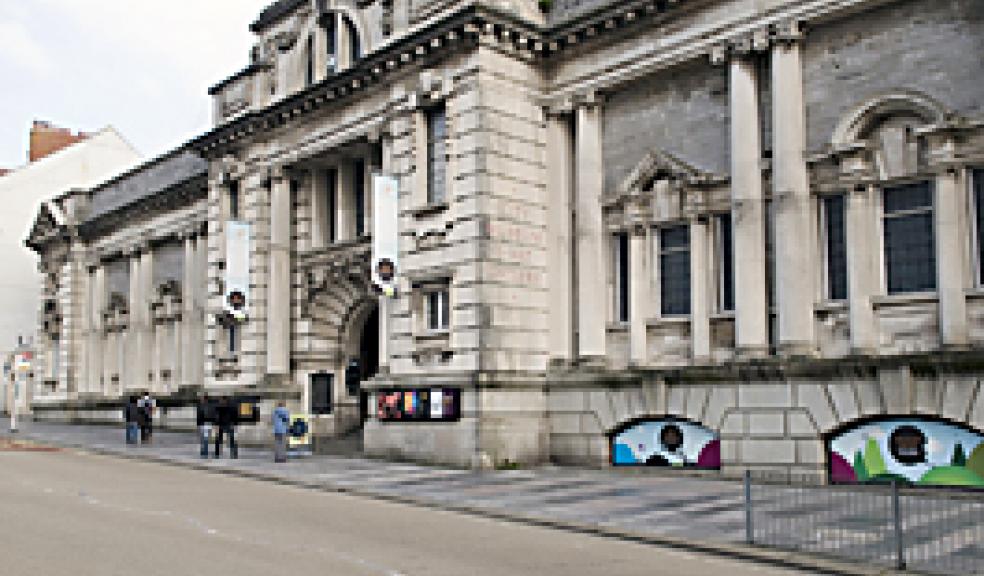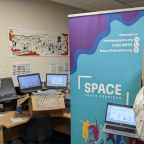
Museum exhibition gives insight into ‘The Making of a Modern City’
A new social history exhibition opening at Plymouth City Museum and Art Gallery this Saturday (27 April) will give visitors a unique insight into the reconstruction of the city following World War II.
‘The Making of a Modern City’ is being held to coincide with the first ever Plymouth History Festival and will run until Saturday 29 June.
Plymouth’s city centre and a number of its suburbs were virtually destroyed by incendiary bombs during the 1941 Blitz of World War II. As a result of this Professor Sir Patrick Abercrombie, a trained architect and town planner and James Paton-Watson, a borough engineer and surveyor, who became Plymouth’s City Engineer in 1936, created ‘The Plan for Plymouth’. This was an ambitious scheme designed to raise Plymouth out of the rubble and turn it into a 21st century city with clearly defined communities, with churches, schools, community centres and houses and well-preserved historic areas such as the Barbican.
The Making of a Modern City exhibition celebrates the 70th anniversary of the creation of this plan and uses the city’s archive collections to reveal some of the documents, images and plans that record the people, politics and places that shaped the Plymouth we know today.
“The exhibition will celebrate how the city picked itself up from incredible levels of devastation and had the ambition to completely rebuild itself and expand far beyond its pre-war boundaries in a remarkably short period of time,” said Museum learning officer and exhibition co-ordinator, Tony Davey. “Regardless of whether they’re from Plymouth or not, the exhibition should definitely provide visitors with a sense of pride in the resilience of the city and its people.”
A series of related events will be on offer while the exhibition is on show. These include a Lunchtime Talk at the Museum and Art Gallery on Tuesday 7 May by Paul Barnard, Assistant Director for Planning at Plymouth City Council. Paul will compare Abercrombie and Watson’s original ideas with the current ‘Plymouth Plan’, which sets out the vision for Plymouth up to 2031.
People can also listen to recordings of leading politicians and officers talking about the post-war rebuilding of the city in ‘Hear Them Talk’ at Plympton Library on Monday 13 May and the Central Library on Wednesday 22 May.
A free screening of ‘The Way We Live’ – Jill Craigie’s 1946 film that examined the plans to rebuild Plymouth – will take place in the Jill Craigie Cinema in Plymouth University’s Roland Levinsky Building on Saturday 25 May.
Visitors to the Central Library can listen to archive recordings of the Plymouth Guildhall organ, which was destroyed in the Blitz, on Wednesday 29 May.
Families can then make, create and discover in a ‘Re-Mapping Plymouth’ half term workshop at the City Museum and Art Gallery on Thursday 30 May. The session will feature creative activities inspired by the exhibition, with visitors looking at old maps of Plymouth and working together to help to make a large 3D version of their own.
A further event will also take place at the City Museum and Art Gallery on Wednesday 19 June when Tony Davey will lead an Art Bite highlighting some of the key items on display.
‘The Making of a Modern City’ will be on show at Plymouth City Museum and Art Gallery from Saturday 27 April until Saturday 29 June. Exhibition opening hours are 10am to 5.30pm Tuesday to Friday and 10am to 5pm on Saturdays. The exhibition is closed on Sundays and Mondays. Admission is free and there is no need to book.
For general information visit the ‘What’s on’ pages at www.plymouthmuseum.gov.uk or telephone 01752 304774. More details and booking information for all the related events taking place in May can also be found on the official Plymouth History Festival website at www.plymhistoryfest.wordpress.com.











